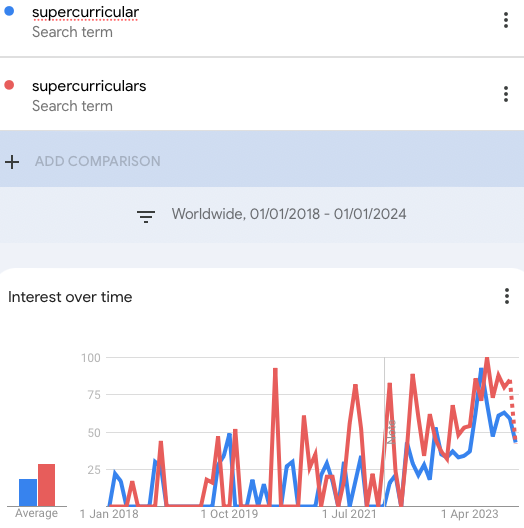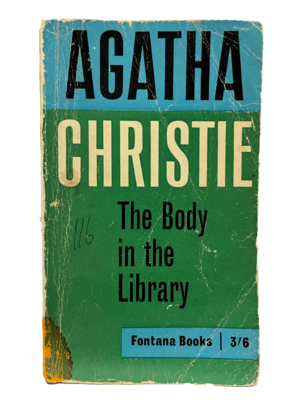What are super-curriculars? Great things to prepare for university applications.
| More Posts by Ronald | |
|---|---|
This is copied from my old blog (2023), for students applying to universities.
I'm Ronald, a private tutor who studied at Maths and Computer Science at the University of Oxford. I have 20 years of success helping people follow my path into top universities. Today's blog post is best for lower sixth formers who are starting to think seriously about top university applications.
Top UK universities, Oxford especially, have started talking about super-curriculars and extra-curriculars, the newest jargon for you to figure out. It's a little inside-joke reference to Latin:
'Super' meaning 'on top of': things that you do over the top of your schoolwork. Think about mathematical things you do in your own time, that show you are interested in maths. Change this to any subject of your choice - but remember that maths is universally valued by top engineering, physics, and computer science courses.
'Extra' meaning 'outside': things that you do that are outside of the curriculum. Think about work, sports, Duke of Edinburgh, volunteering: things that you do outside of the classroom, that can also show great skills and personal motivation, but are not strongly connected to what you'll be studying.

So, top universities are looking mostly at your super-curriculars. I like to go even one step further: we'll talk about passive and active super-curriculars.
'Passive' meaning that someone else did the hard work and you are mostly there to sit and absorb the results. Think: books, videos, podcasts, most online courses, trips and clubs organised for you by your school.
'Active' meaning that you had to actively engage to do something more unique to you. Think: programming projects, olympiads, small businesses, university courses, trips and clubs that you need to organise yourself.
Passive super-curriculars
Passive super-curriculars are always a great thing to do! If you're really building an interest in your subject, you should be doing these all the time. Take every opportunity available to you! If your school organises an extra-hard math club, you'll start to be the first person there. If you're bored and want to relax, maybe you'll watch some science content on YouTube.
Passive super-curriculars are things that you do for fun! There's no set way of doing this, and the most important thing is that you are enjoying yourself and feel excited to do more. This process will also help you find exactly the right subject for you.
One strategy is to start with university pre-admission reading lists.
For example, the Oxford Computer Science reading list has lots of great suggestions (including podcasts, magazines and videos). If a reading list is mostly reference books, ditch it - your goal is to find something fun.
Maybe an even better strategy is to go to a big-ish bookshop (or library) and just find the right vibe, browse the popular science section. Pick some books that stand out for you personally.
Your goal is to try something, to check it out, and then build from there. Let's suppose you pick Simon Singh's Code Book and start reading.

Are you mostly engaged with Simon's writing? You're gonna read Simon Singh's Fermat's Last Theorem.
Are you mostly interested to learn more about cryptography? You're gonna check out the National Cipher Challenge.
Are you mostly gonna tear your eyes out before you get to the end of the book? This wasn't for you, or wasn't for now. Forcing yourself to do super-curriculars that you find boring will usually just kill your motivation. You're gonna put it down and pick something else that sounds more fun.
Ideally, this is a continuous process. You're doing this all the time and it becomes natural to you. It's fun! The key is to do what you enjoy - that's the only way you're going to keep doing it enough.
In your application and personal statement questions, it's useful to talk about a variety of passive super-curriculars - to show that you read, to show that you can make connections across your subject. It's good to use them as a frame to show that you now have your own deep and unique thoughts worth sharing. But...
Active super-curriculars
Active super-curriculars are gonna put your application over the top.
These are things that you did that took an extreme effort and show that you're ready to go above-and-beyond for your subject. It depends a lot on context, so here's two related examples:
On the one hand, say your school enters people for the British Informatics Olympiad each year. You turn up one year and do pretty good. This would be kind-of-active and definitely belongs on your application. You chose to do an extra test, put some effort into studying, and got a good result at the end. But, someone else organised it for you, and told you to do it, so you did it - it's still kind-of-passive.
On the other hand, say your school has never mentioned the British Informatics Olympiad. You show up at the Computer Science teacher's classroom door and won't give up. You talk them through what they need to do, get them to set a date, commit them to registering the school, invigilating the test, and doing the marking for you. Your passion is so strong that you've convinced someone else to do 10 hours of extra work, all so you can sit an extra test. Now, you're being active.
Clearly, some of these opportunities are available to you, and some are not: maybe your computer science teacher is a grump who just won't help you. But, there are always plenty of opportunities that fit you, and you have to find them. Most of these opportunities won't work out - you gotta be persistent. It's a question of finding the right opportunities. One skill we are trying to show here is that you're becoming an independent learner, not only waiting for a teacher to tell you what to do.
One way to think about this is problem-solving. What kinds of problems do you have or do you notice in your surroundings, that you could solve with some effort while using the skills from your subject? Some people might think of this a business opportunity - can you build something and sell it; can you do something that people would pay for? In open source software, can you just go ahead and fix that bug that's been causing you problems? What club would you be motivated to go to every lunchtime - if only someone 🧍🏻 had thought of starting it up with their friends. (The emoji is you).
Courses offered by a university can also count as active. You'll be showing that you're ready for university, able to follow a course which requires you to do some independent learning, and capping it off with an excellent and unique final project. Think Harvard's CS50: Introduction to Computer Science. This is a level above an A-Level classroom: don't take it on lightly. Many high school students might start, but will not be capable of reaching the end of the course. It's often going to be a good decision to drop out. Maybe it wasn't a fit for you, or you had too many other commitments. Getting to the end will be a real achievement, worth celebrating.
Not yet sure what fits you? Keep going with your regular passive super-curriculars, and you'll uncover new avenues. A great active super-curricular is as unique as you are - nobody else can tell you exactly what's right. Get exploring!
Top universities like Cambridge, Warwick, Oxford, and Imperial College are looking for academic excellence - your A-level grades will always be the most important element of your application. If you'd like personal tuition support and guidance throughout A-level Maths and Further Maths, or for any part of the application process, then drop me a message at ronald@mathswithronald.com or WhatsApp +31682589013
